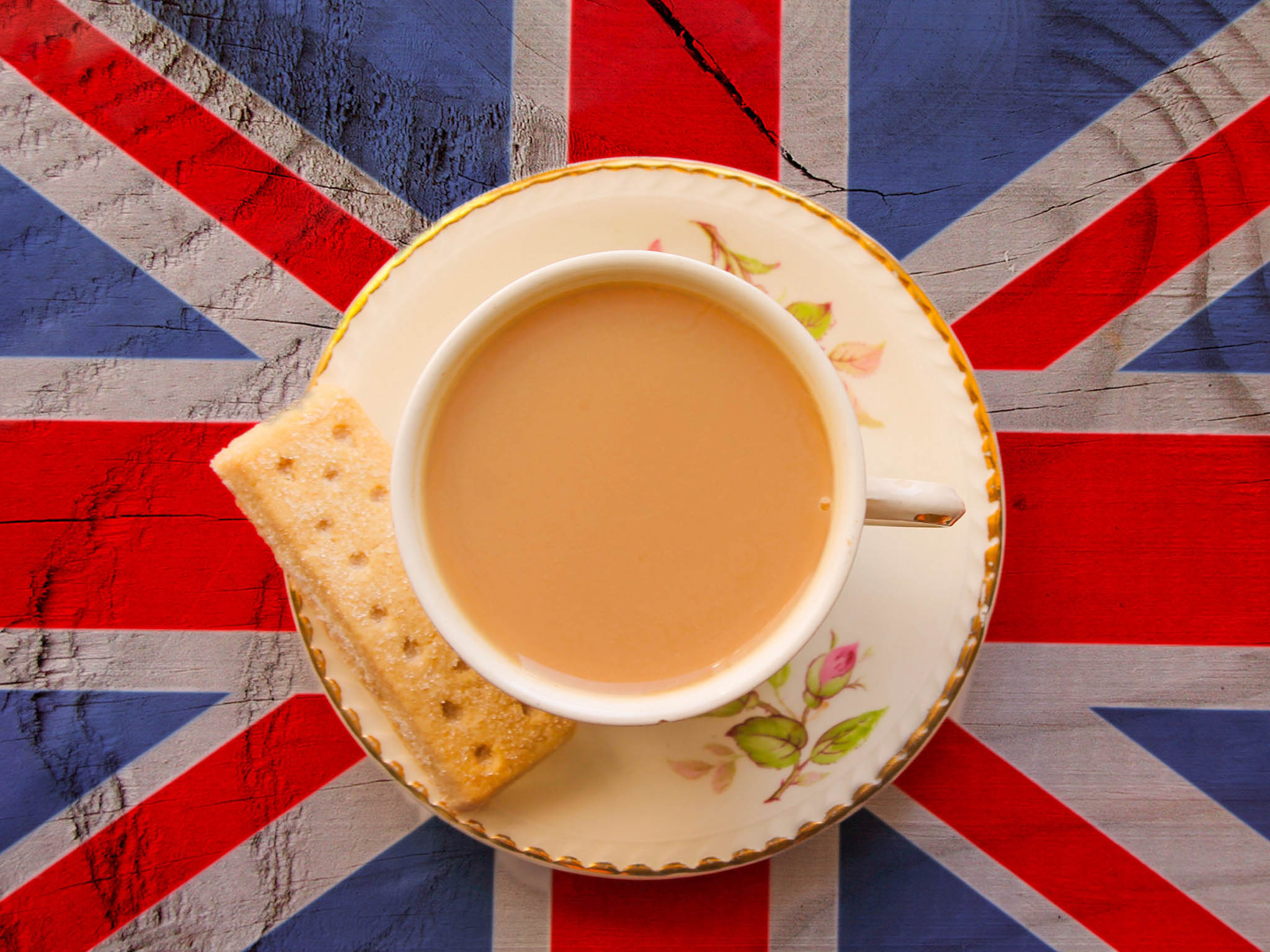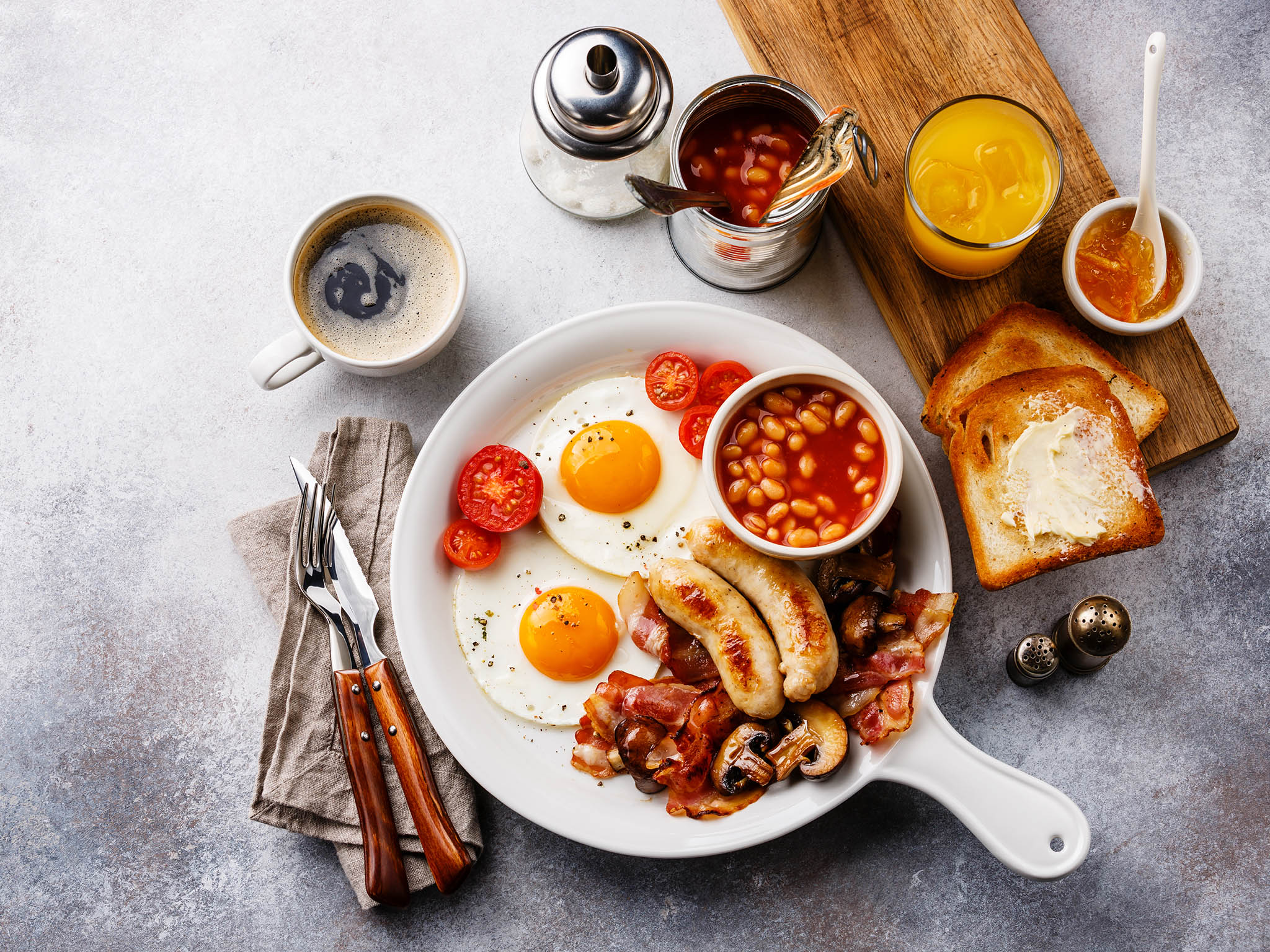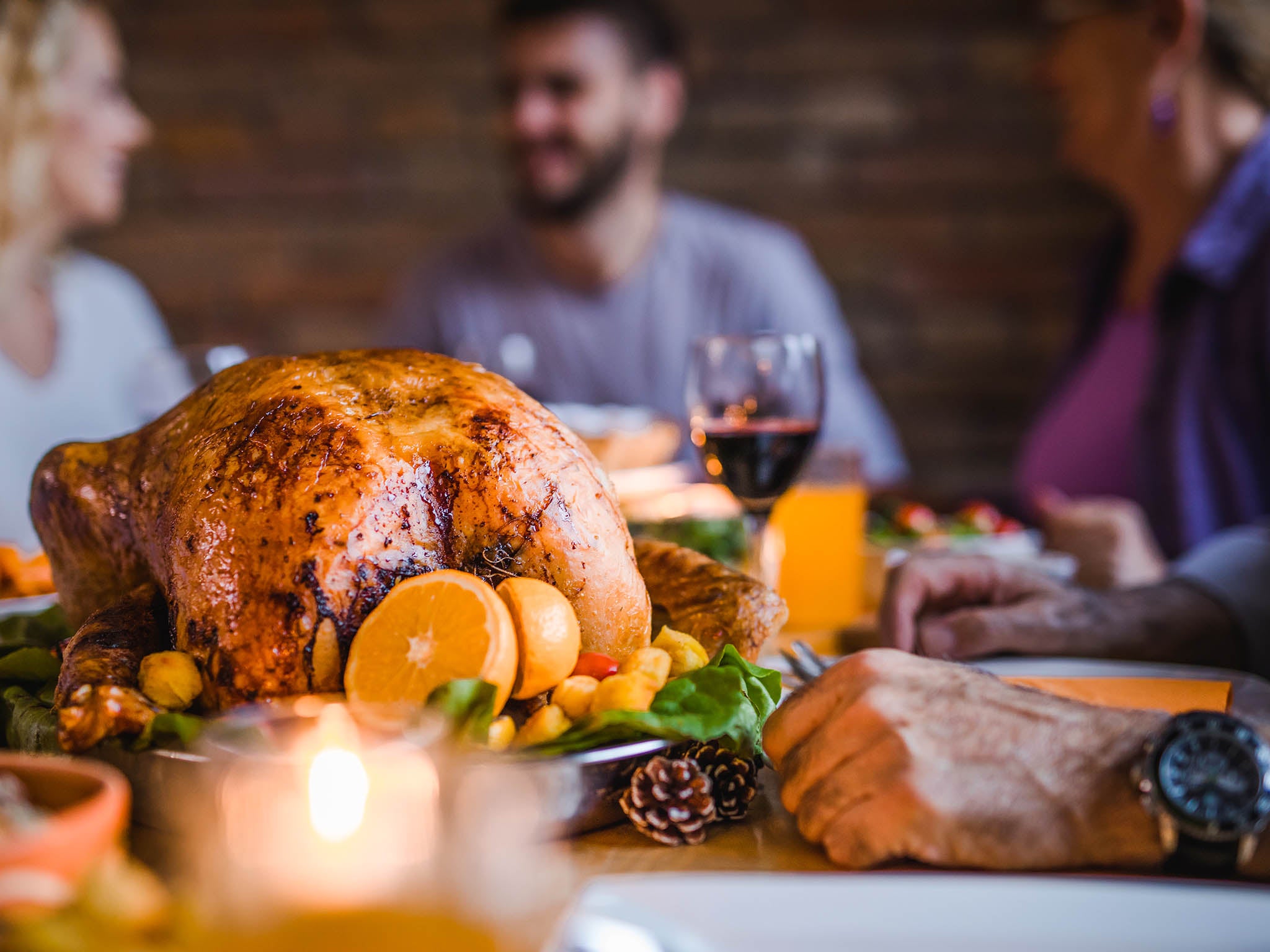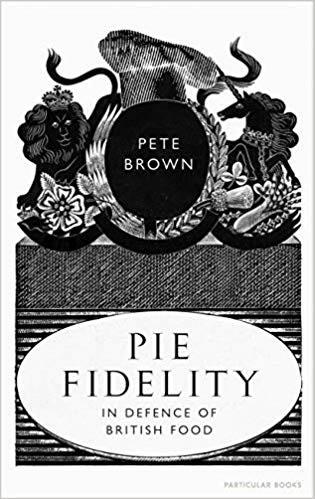The Independent's journalism is supported by our readers. When you purchase through links on our site, we may earn commission.
How did Britain get such an awful reputation for its food?
It was accepted for decades that the UK's food was not up to par, but why? It's got fish and chips and an English fry up. Julia Platt Leonard meets Pete Brown who won't apologise for it anymore


Your support helps us to tell the story
From reproductive rights to climate change to Big Tech, The Independent is on the ground when the story is developing. Whether it's investigating the financials of Elon Musk's pro-Trump PAC or producing our latest documentary, 'The A Word', which shines a light on the American women fighting for reproductive rights, we know how important it is to parse out the facts from the messaging.
At such a critical moment in US history, we need reporters on the ground. Your donation allows us to keep sending journalists to speak to both sides of the story.
The Independent is trusted by Americans across the entire political spectrum. And unlike many other quality news outlets, we choose not to lock Americans out of our reporting and analysis with paywalls. We believe quality journalism should be available to everyone, paid for by those who can afford it.
Your support makes all the difference.When I told friends I was moving to the UK 20 years ago, they immediately blurted out, “But what about the food?”
How – they said – could anyone who loved cooking and eating as much as I do, possibly move to a place with such abysmal food? I tried to reassure them that the food scene was changing, that there was much on offer, and that it would be okay.
But if they were missing the point, then so was I.
As Pete Brown puts it in his latest book Pie Fidelity: In Defence of British Food, “How did Britain get such an awful reputation for food? And why are many of us happy to accept it?”
Why indeed? People in other countries may delight in rolling their eyes at the mere mention of British food, but why, Brown asks, don’t we stand up for ourselves and tell them they’re wrong? Why don’t we tell them how great food is in Great Britain?
And by great, he’s not talking about haute cuisine or Michelin stars, but about the dishes that we love and do really well. He chose nine, and devotes a chapter to each one.
The first challenge, he says, was deciding which dishes would make the cut and which wouldn’t.
“It was incredibly difficult. I think the top three are a full English breakfast, fish and chips, and the roast dinner – they’re easy.”

After that, there was a long list which he winnowed down to final favourites including spag bol, curry, and of course the pie and peas of the title.
The result is a combination of food and social history – with a healthy dose of memoir thrown into the mix.
“I did not pitch a memoir book,” Brown says, “but it’s when I sat down and said, ‘I’ve got some thoughts in my head that I want to get down on paper before I start doing my historical research.’ And it just poured out.”
For Brown that meant delving into his own food history growing up in Barnsley in the north of England. He admits he has an “ambivalent” relationship with Barnsley, speaking of his, “…tendency to be simultaneously critical and defensive of it…”

It’s a love-hate relationship that many of us can appreciate – a sense of being linked, for better or worse, to our childhood homes and the food we ate. “As soon as I start talking about the book, everybody wants to relate their own childhood experiences, and their own relationship with some of these dishes. It’s really interesting that when you talk about food, it unlocks all this memory,” he says.
He travelled around Britain, looking for the “typical” version of each dish rather than the “best”, for the simple reason that the best for one person, isn’t for another. He says, “…we all have our own idea of what the perfect meal is. And it’s only when you start talking about it do you realise how deeply held these opinions are.” He went to Blackpool for fish and chips, Birmingham for a balti, and Devon (no, not Cornwall) for cream tea.
Along the way, he shares his own views on subjects such as the secret behind a proper chip buttie (cheap margarine and sugary ketchup – “not posh Heinz”) or why crispy strips of streaky bacon have no business in a bacon sandwich.
Or there’s his mad mathematical calculation on the number of potential five-ingredient breakfasts you could get from 13 ingredients on offer at Andrew’s Café in London. Spoiler alert: it’s in the millions.
Deciding where to eat a cheese sandwich – arguably the simplest dish in the book – proved to be the most challenging. High street chains with their pre-packaged sandwiches – “an incredibly dispiriting experience” – have destroyed the simple joy of a cheese sandwich made well.
And it’s this loss, whether it’s poorly-made sandwiches or fish and chip shops using frozen chips that saddens Brown.

“I didn’t set out to write a book as an elegy to these places,” he says. But he acknowledges that it’s becoming more difficult for them to survive. “We’re losing so much of that kind of stuff. All the small, independent, family-owned places are just being crushed by big chains.”
Maybe one of the ways we can save these places and our own food heritage is to stand up for British food.
Maybe it’s okay for us to be proud of what we do really well whether it’s a perfectly baked scone with a lick of jam and a dollop of clotted cream or proper farmhouse cheddar cheese with chutney on granary bread. And in reading Pie Fidelity, it’s clear we’ve got a lot to be proud of.
‘Pie Fidelity: In Defence of British Food‘ by Pete Brown, published by Particular Books, £16.99, is out now
Join our commenting forum
Join thought-provoking conversations, follow other Independent readers and see their replies
Comments